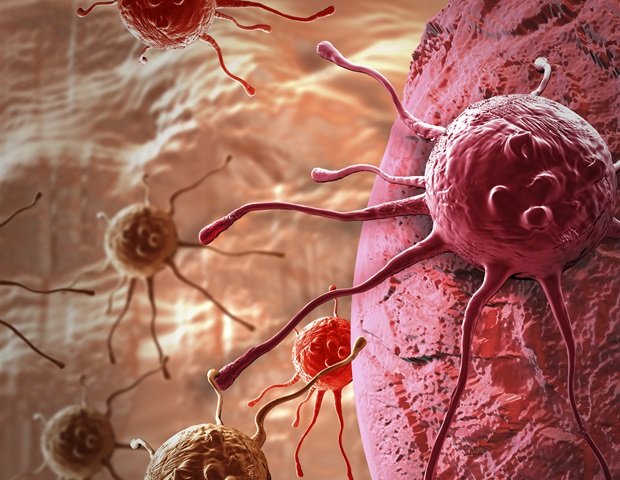Scientists at Ludwig Cancer Research are integrating multiple molecular and genetic analyzes of specific molecular targets in tumors and T cells and using artificial intelligence algorithms to personalize the output for cancer vaccines for patients. We have developed a complete computational pipeline from start to finish that can be used to design.
The design, validation, and comparative evaluation of this computational suite NeoDisc are detailed in the latest issue of Nature Biotechnology, a publication led by Florian Huber and Michal Bassani-Sternberg of the Ludwig Institute for Cancer Research Lausanne branch.
“NeoDisc provides unique insight into the immunobiology of tumors and the mechanisms by which tumors evade targeting by the immune system’s cytotoxic T cells,” said Bassani-Sternberg. “These insights will be invaluable for the design of personalized immunotherapies, and NeoDisc’s core analytical and computational pipeline is already in clinical use for personalized cancer vaccines and adoptive cell therapies here in Lausanne. It is used for testing.”
Many types of cancer have multiple random mutations, which should make them easier for the immune system to recognize. Such mutations produce abnormal proteins, even cancerous ones, that cells cleave into short fragments known as peptides that “present” as antigens, inviting attacks by patrolling T cells. It is programmed as follows.
The diversity of these “neoantigens” is one reason why patient responses to immunotherapy are so variable. Neoantigens, on the other hand, can be used to develop vaccines and other types of immunotherapies that are tailored to individually target each patient’s tumor. This type of personalized treatment is currently being developed by researchers around the world.
Such efforts are technically challenging because not all neoantigens are recognized by T cells in a given patient, and many of the recognized neoantigens fail to elicit a sufficiently potent T cell attack. Therefore, one approach to designing personalized vaccines and cell therapies involves the identification of neoantigens most likely to elicit active T cell attacks.
This includes a sophisticated and extensive study of the mutations that generate potential neoantigens, the molecular scaffolds that present them to T cells (known as HLA molecules), and the molecular characterization that allows them to be recognized by T cell receptors. Analysis is required. Bassani-Sternberg is one of the pioneers in the high-tech fusion of large-scale biochemical and computer analysis known as “immunopeptidomics.”
The design of personalized immunotherapies also relies on genomic analysis of both tumors and blood cells that represent the patient’s healthy genome, large-scale analysis of gene expression known as “transcriptomics,” and sensitive gene expression analysis. Supported. It is called an immunopeptide dome with mass spectrometry. But until now, these powerful techniques have been integrated into a single computational pipeline to determine which neoantigens identified within a patient’s tumor should be used as a vaccine or harnessed for personalized immunotherapy. I never predicted what I should do.
Furthermore, neoantigens are not the only type of antigens available for targeting with immunotherapy. Cancer cells also, in the case of virus-induced tumors, typically misexpress parts of non-coding DNA, genes that are normally only expressed during development, other aberrantly expressed gene products, or viral antigens as proteins. I will. All of these can cause an immune attack.
“NeoDisc detects all these different types of tumor-specific antigens, along with neoantigens, and applies machine learning and rule-based algorithms to prioritize and identify the antigens most likely to elicit a T-cell response. We can use the information to design personalized cancer vaccines for patients,” Huber said.
NeoDisc also ranks the potential antigens it detects and visualizes the heterogeneity of cancer cells within the tumor.
“Specifically, NeoDisc can also detect potential defects in the antigen-presenting machinery, alerting vaccine designers and clinicians to important mechanisms of immune evasion in tumors that can compromise the efficacy of immunotherapy,” said Bassani.・Mr. Sternberg stated. “This will help select patients for clinical studies who are likely to benefit from personalized immunotherapy, which is also a critical feature in optimizing patient care.”
Researchers have also shown in their study that NeoDisc can more accurately select cancer antigens for vaccines and adoptive cell therapies than other computational tools currently used for that purpose.
To further improve NeoDisc’s accuracy, researchers will continue to feed NeoDisc with data from a variety of tumors and integrate additional machine learning algorithms into the software suite to further train and improve prediction accuracy. Masu.
sauce:
Ludwig Cancer Institute
Reference magazines:
Huber, F. et al. (2024). A comprehensive proteogenomic pipeline for neoantigen discovery to advance personalized cancer immunotherapy. Nature Biotechnology. doi.org/10.1038/s41587-024-02420-y.

